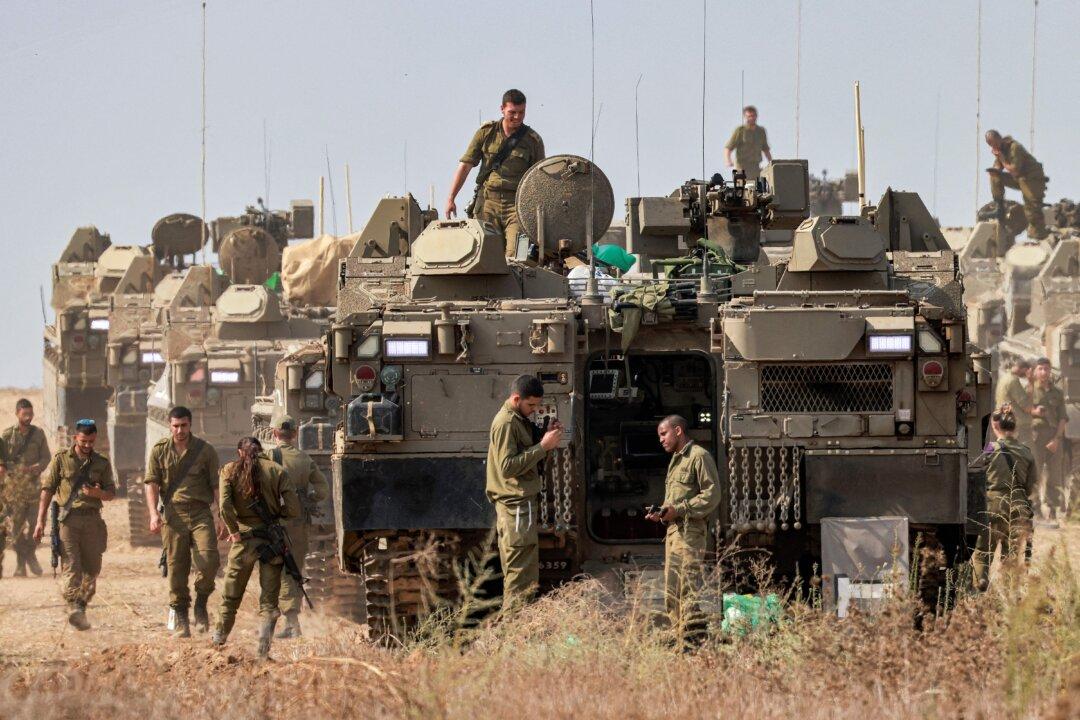The Israeli military has admitted its forces likely endangered civilian noncombatants during an airstrike in the Gaza Strip this week in which dozens of casualties were reported.
Israeli aircraft carried strikes on the central Gaza Strip town of Maghazi on Dec. 24 and 25, including at least one strike on a refugee camp operated by the United Nations Relief and Works Agency. Gaza-based health officials initially estimated at least 68 people were killed in the strike at the Maghazi Refugee Camp on Sunday, though the Associated Press subsequently reported records from the nearby hospital suggested up to 106 people may have been killed at the refugee camp.





